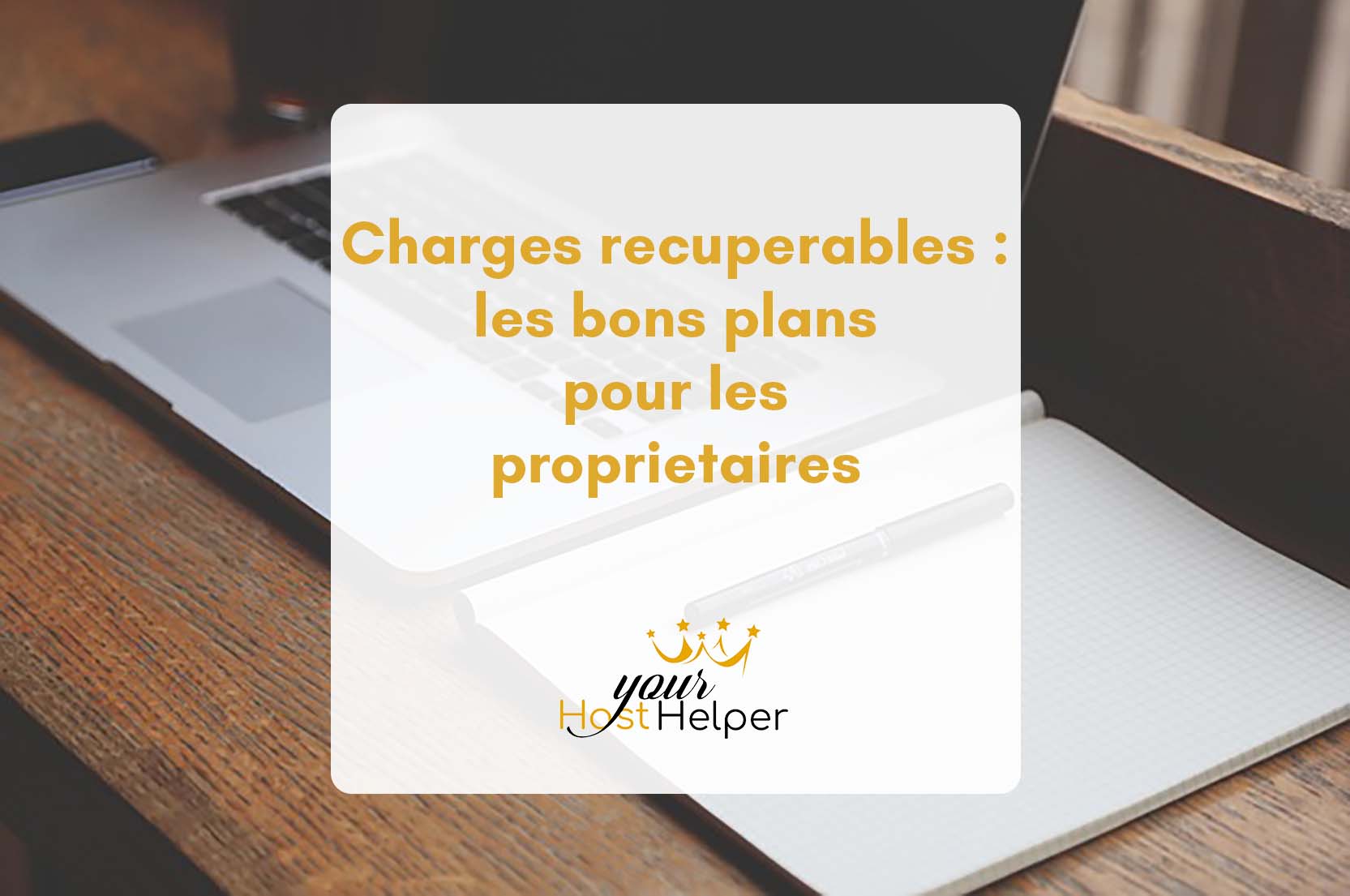How Homeowners Can Lower Their Bills With Recoverable Charges
When investing in real estate rental, owners hope for a profitable and sustainable investment on which they can rely without great uncertainty. However, one of the most problematic aspects of a rental remains the tax regime and the charges to be paid for the normal operation of an accommodation. But then, how can you be sure of making the right rental investment? Did you know that a landlord can deduct part of the rental charges from the tenant? Your Cannes concierge details the recoverable charges for owners and how to calculate them to make your rental purchase more competitive.
The differences between deductible and recoverable expenses
Before starting, it is a good idea to establish the difference between so-called “deductible” expenses and recoverable expenses. Indeed, the former can be deducted directly from your tax notice. Recoverable or rental charges are the responsibility of the tenant.
The costs submitted to the owners by the deductible expenses depend directly on the tax regime chosen by the lessor in furnished rental. Two choices are possible with the micro-BIC regime (or lump sum regime) and the real regime. These offer 50% reductions based on annual revenue collected or a larger deduction under the real regime (provided your costs exceed 50% of your revenue).
Namely: rental charges can become deductible if they are not paid by the tenant (departure of a tenant without papers or absence of a tenant during part of the year).
What are the recoverable charges for owners
Generally speaking, charges that can be billed to tenants are called recoverable charges. Your Cannes concierge will detail the three main categories of expenses recoverable from your tenants.
Service charges
They include expenses related to housing and the use of common premises in the building. These include:
- Costs related to the lift maintenance contract (annual inspection, cabin repairs, maintenance of bearings and fuses) as well as related electricity bills.
- Water and heating expenses. This concerns: the water used by the tenants, the water necessary for the maintenance of the common areas (exterior and interior), the products for the treatment of water, the supply of energy, the costs intrinsic to the water production and exploitation equipment (meter, piping, etc.).
maintenance costs
The tenants are responsible for the running costs used to maintain the common areas in good condition. Among them are:
- Maintenance of interior common areas. That is to say the costs incurred by the use of electricity as well as supplies and maintenance products. These expenses also relate to the maintenance of timer devices, carpets, garbage chutes, but also the repair of cleanliness devices. Building maintenance staff costs are also included.
- Operation of outdoor common areas. Expenses for the development of green spaces (cutting, weeding, cleaning, watering, etc.) as well as the purchase of gardening products (fertilizer, seeds, plants and flowers, insecticides, etc.) are included in the monthly price paid by tenants.
Rental taxes
Three taxes can be induced in the price of your rents and recoverable through your tenants. Among them we find:
- The household waste collection tax.
- The sweeping tax.
- Sanitation fee.
If you wish to read the exhaustive list of charges as a whole, find the decree of August 26, 1987 setting the list of recoverable charges on the government website.
Management of recoverable charges with your Cannes concierge
There are therefore indeed charges that owners can transfer to tenants. But how to do it well and what does the law say? Your Cannes concierge will help you to benefit from these welcome reductions on your rental costs.
Calculation of recoverable charges
Two options are available to owners.
- If your accommodation is rented empty, you can add to the amount of the rent what are called provisions on charge. These provisions are calculated according to the forecast budget for condominiums or in relation to the regularization carried out the previous year.
- If your accommodation is rented furnished (as is the case for Airbnb seasonal rentals), you can request an advance for recoverable charges in the form of a provision on charge or flat-rate charges. These are calculated based on therent benchmark index made available by the Ministry of the Economy.
Annual adjustment
In the event of a provision on charges, the owner must provide his tenant with a statement of the charges at least 1 month before the request for regularization. This document lists the charges for which the tenant is liable to enable him to verify the costs claimed from him. This report takes into account all the provisions already paid by the tenant and indicates the amount still to be paid. In the case of an overpayment, the owner must repay the amount due on the date of adjustment.
As a landlord, you must provide your tenant with all the invoices justifying the expenses listed on the statement of charges. These supporting documents must be kept for a minimum of six months. Note that all owners have three years to proceed with the regularization. However, after a period of one year, the tenant may demand payment in installments of the additional charge which will be requested of him.
For furnished rentals including flat-rate charges, there is no possible adjustment at the end of the year. It will therefore not be possible for the owners to request a supplement from the tenant if the total expenses are greater than the recoverable charges collected. Seasonal rentals are the perfect example of rentals using flat-rate charges to recover rental costs. Your Cannes concierge is there to advise you on the amount of its recoverable charges to avoid any problem of additional costs.
Recoverable charges are rental costs borne by tenants. Owners can then take advantage of a reduction in their rental expenses thanks to two systems of monthly supplements: provisions on charges and flat-rate charges. These are added to the amount of the tenants' rent and thus allow investors to reduce their property charges. As a seasonal rental specialist, your Cannes concierge advises you to opt for flat-rate charges for simplicity.





